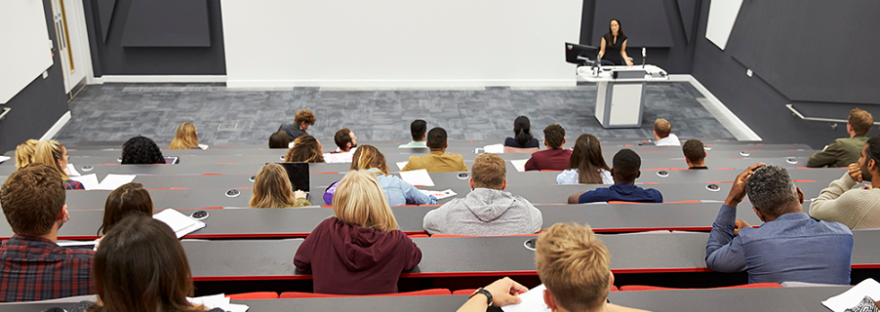The Covid-19 pandemic has highlighted the need for new flexible approaches to teaching and learning to ensure excellent student experience. One aspect of both undergraduate and postgraduate teaching in physiology, that has been most affected, is the delivery of practical classes and skills teaching. This experiential mode of teaching is invaluable in supporting the taught, theoretical component of Bioscience education.
HyFlex teaching environments allow a combination of in-person and remote delivery ensuring no student is disadvantaged in terms of learning experience if they are unable to attend taught classes in person. It also allows such teaching to be recorded for upload and later reviewed by students to support learning. There are limited HyFlex teaching high spaces available across the College which are currently restricted to classroom spaces. We believe that greater availability is required to facilitate practical and laboratory skills training.
Whilst we had already recorded high quality videos of all the practical classes for our MSc course, in preparation of online delivery we were aware that this mode of education works best with supplementing a hands-on experience. Therefore, we sought a way for the students to gain some experience in the essential laboratory skills needed for understanding of the key mechanisms underpinning our teaching as well as providing skills training in techniques they would require in later modules on the MSc and in their research project.
During semester 1 in the current academic year (October 2020), we successfully ran 8 HyFlex teaching sessions in our teaching laboratories in the Centre for Human Applied Physiology (Shepherds House, Guys Campus).


Figure 1 A) The Lab setup for a cardiovascular practical class showing camera, equipment, and screens. B) the class in action with a tutor demonstrating equipment and skills with live feed streaming over Teams.
We used commercially available low-cost portable equipment (owned by the authors) open-source software (Open Broadcast Software, OBS) to create a bespoke HyFlex teaching environment in one of our teaching labs following a full risk assessment.
As shown in Figure 2, i) two webcams (one for a wide-angle camera and one, mobile camera, for images of equipment and participants); ii) a radio microphone to ensure clear audio on both the recording and live stream and, iii) a PC laptop to run the software required for the experiment being undertaken and for video and audio mixing and broadcast were used.

Figure 2: Setup of equipment using standard office supplies, open-source software, and staff-owned equipment.
All the sessions were recorded and uploaded to KEATS for revision purposes.
This approach was used for our module 7BBLM004, Cardiovascular and Respiratory Physiology, which forms a core part of the MSc in Human and Applied Physiology.
Due to social distancing and limits on room capacity we repeated each practical on 4 occasions during each day of teaching, with several students joining for both their in-person session as well as the remote HyFlex session at a different time point in the day.
The students were incredibly supportive and grateful for the opportunity to receive some practical teaching, particularly as some were unable to join the in person practical classes. Feedback from the students confirmed that the classes were beneficial and that the participants felt safe while on campus and in the classes (Figure 3).

Figure 3 – Feedback from students following the HyFlex practical sessions.
We believe this approach offered enhanced participation to on-campus activities by those students who cannot attend in person for courses and modules which have a significant laboratory practical component.
Written by Dr James Clark & Dr Ged Rafferty
 Dr James Clark is a Reader in Human & Applied Physiology and Education Lead for the School of Cardiovascular Medicine andSciences. He currently runs the Human & Applied Physiology MSc. James supports a blended approach to education in HE and has been the recipient of a King’s award for innovative teaching (2017) as well as the Physiological Society Otto Hutter Prize for Excellence in Physiology Education (2019).
Dr James Clark is a Reader in Human & Applied Physiology and Education Lead for the School of Cardiovascular Medicine andSciences. He currently runs the Human & Applied Physiology MSc. James supports a blended approach to education in HE and has been the recipient of a King’s award for innovative teaching (2017) as well as the Physiological Society Otto Hutter Prize for Excellence in Physiology Education (2019).
 Dr Ged Rafferty is a Reader in Human & Translational Physiology in the Centre for Human and Applied Physiological Sciences He is currently the lead for 7BBLM004 Cardiovascular and Respiratory Physiology and will assume the lead for the MSc in Human & Applied Physiology in 2021-22. Ged is an advocate for experiential learning and the benefits of practical teaching in human physiology.
Dr Ged Rafferty is a Reader in Human & Translational Physiology in the Centre for Human and Applied Physiological Sciences He is currently the lead for 7BBLM004 Cardiovascular and Respiratory Physiology and will assume the lead for the MSc in Human & Applied Physiology in 2021-22. Ged is an advocate for experiential learning and the benefits of practical teaching in human physiology.


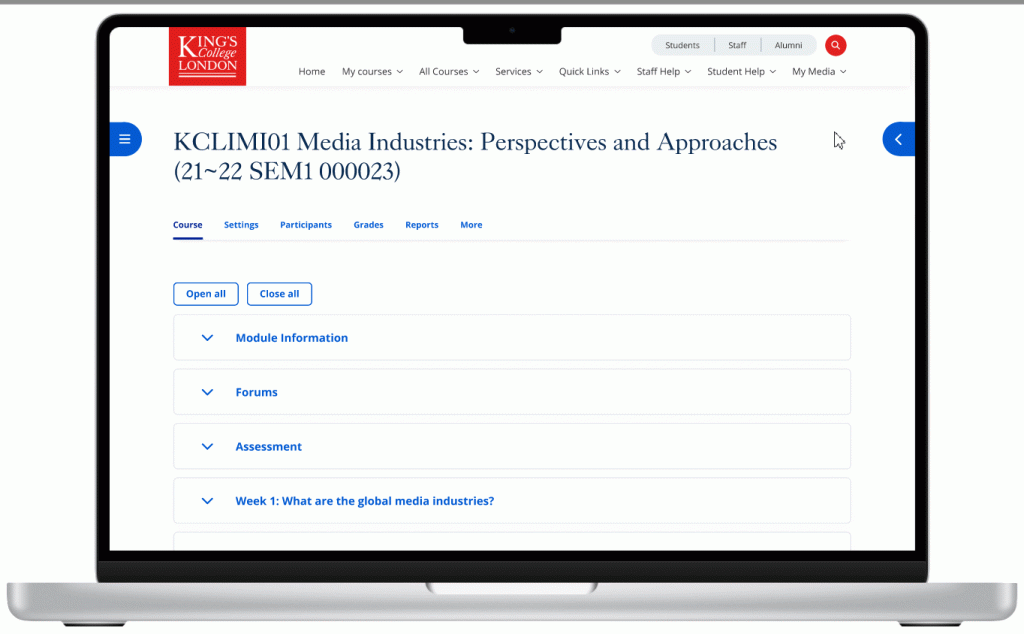
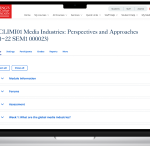
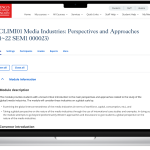
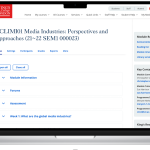
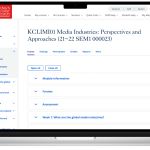
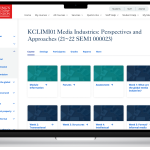
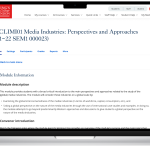

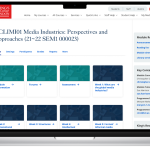

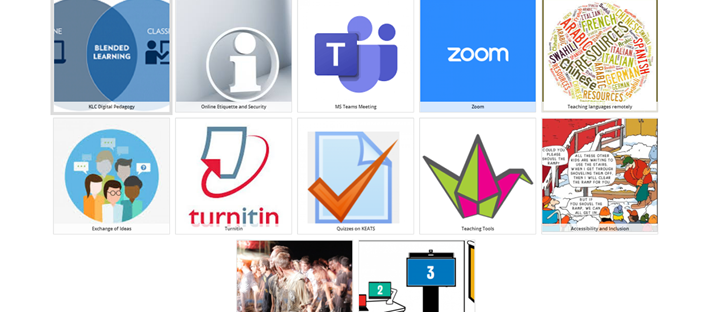
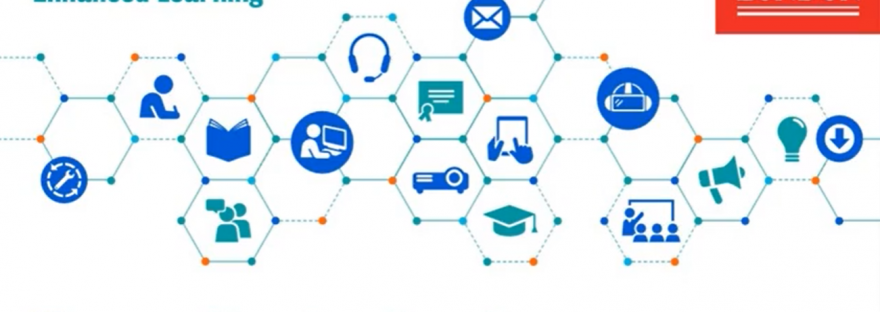
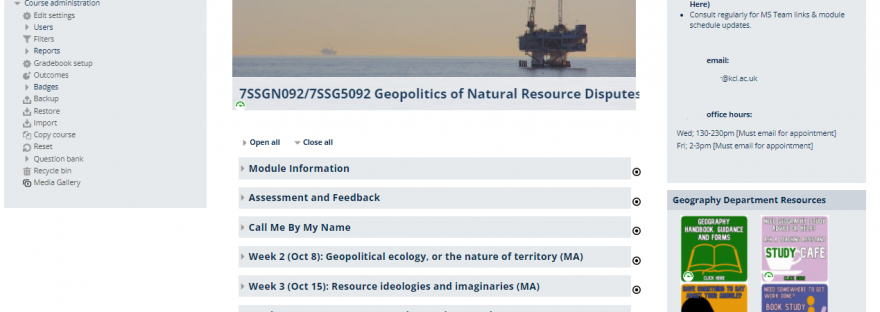




 Dr James Clark is a Reader in Human & Applied Physiology and Education Lead for the School of Cardiovascular Medicine andSciences. He currently runs the Human & Applied Physiology MSc. James supports a blended approach to education in HE and has been the recipient of a King’s award for innovative teaching (2017) as well as the Physiological Society Otto Hutter Prize for Excellence in Physiology Education (2019).
Dr James Clark is a Reader in Human & Applied Physiology and Education Lead for the School of Cardiovascular Medicine andSciences. He currently runs the Human & Applied Physiology MSc. James supports a blended approach to education in HE and has been the recipient of a King’s award for innovative teaching (2017) as well as the Physiological Society Otto Hutter Prize for Excellence in Physiology Education (2019). Dr Ged Rafferty is a Reader in Human & Translational Physiology in the Centre for Human and Applied Physiological Sciences He is currently the lead for 7BBLM004 Cardiovascular and Respiratory Physiology and will assume the lead for the MSc in Human & Applied Physiology in 2021-22. Ged is an advocate for experiential learning and the benefits of practical teaching in human physiology.
Dr Ged Rafferty is a Reader in Human & Translational Physiology in the Centre for Human and Applied Physiological Sciences He is currently the lead for 7BBLM004 Cardiovascular and Respiratory Physiology and will assume the lead for the MSc in Human & Applied Physiology in 2021-22. Ged is an advocate for experiential learning and the benefits of practical teaching in human physiology.